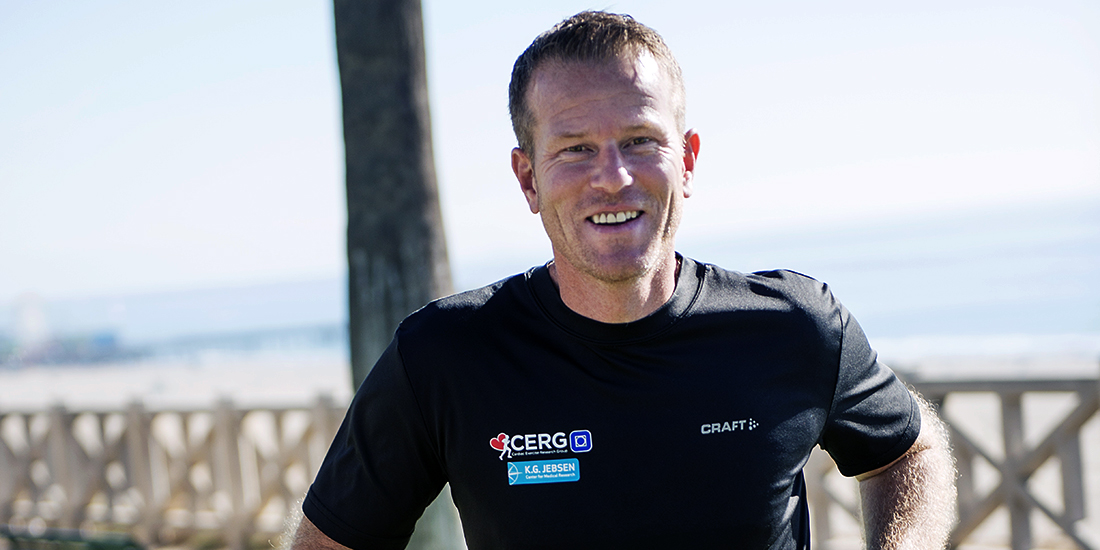Public health researcher wins prestigious national award
Ulrik Wisløff has been selected for the Heart Research Award for his studies on training as cardiac medicine. The prize is presented by King Harald.
CERG Professor Ulrik Wisløff was chosen for the Norwegian Heart Research Award by the Norwegian National Association for Public Health. The award is presented by King Harald V at the Norwegian Theatre in Oslo in early February.
Wisløff was chosen for the award based on his research on training as cardiac medicine.
He is known for having documented that intensive interval training is both safe and very effective for patients with lifestyle diseases such as heart failure, heart attack, diabetes and obesity. Wisløff has also developed renowned health innovation tools such as the Fitness Calculator and Personal Activity Intelligence (PAI).
Later this year, the world’s largest randomized training study, NorEx, will start, where Wisløff is one of the project leaders.
Versatile training research
Ulrik Wisløff became an NTNU professor in 2008 and built up the Cardiac Exercise Research Group (CERG), which today has more than 50 employees. Between 2011 and 2019, CERG was also a K. G. Jebsen Centre for Medical Research.
CERG research covers everything from animal studies to clinical training studies and epidemiological studies based on the Nord-Trøndelag Health Survey (HUNT). Wisløff has initiated major international training studies, and he has helped to establish the National Advisory Unit on Training as Medicine at St. Olavs Hospital in Trondheim.
Over the course of his research career, Wisløff has published more than 300 research articles and received well over NOK 300 million in research funding. He has supervised roughly 40 doctoral fellows and more than 20 postdoctoral fellows.





